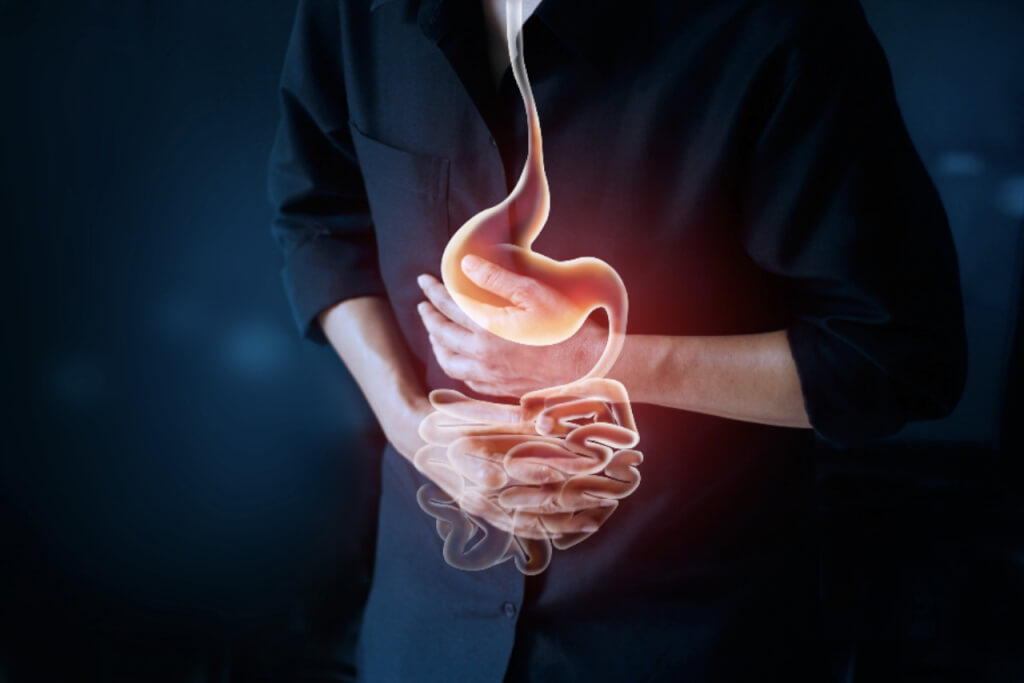Advertising Disclosure
5 digestive symptoms you should never ignore

Digestive issues are common from time to time, and people frequently dismiss painful symptoms as not that serious. A stomach ache after a big meal usually isn’t something to worry about, but sometimes this is not the case. It’s easy to ignore digestive symptoms if you are busy, don’t want to take time off from work, or just don’t want to see a doctor. Whatever the reason may be, ignoring certain digestive symptoms can be dangerous and sometimes life threatening. These symptoms are a warning sign that something serious may be going on. When is the right time to see a doctor? Read on to find out five digestive symptoms that should be taken serious.
1. BLOOD IN THE STOOL
Blood in the stool doesn’t always mean something serious is wrong. But it can be a symptom of multiple different things. Blood in the stool can look different depending on where the blood is coming from. The blood can vary in color and it is important for a doctor to find the source of the bleeding. Blood could be the result of E.coli infection, a stomach ulcer or Crohn’s diseases.
When you are bleeding from the lower part of your gastrointestinal (GI) tract the color tends to be more maroon or bright red, as opposed to blood from the upper GI tract which is much darker. Common causes of bleeding from the lower GI tract include colon cancer, inflammatory bowel disease, polyps (small growths on the intestinal wall). diverticulitis (pouches along the intestinal wall). Common caused of bleeding from the upper GI tract include gastritis, enlarged veins in the esophagus or trauma in the esophagus.
2. CHRONIC CONSTIPATION
Constipation is a thing most people have experienced and gets more common with age. Technically, the medical definition of constipation is “less than three bowel movements per week, or bowel movements that are small, hard, dry and painful or difficult to pass.” There are dietary changes you can make or supplements you can take to get rid of constipation, but medical attention is needed if the constipation continues. Constipation can become life threatening if untreated over time. This is because the stool can accumulate and harden to the point where removal becomes difficult or impossible. It has also been linked to conditions like irritable bowel syndrome, diabetes and, in rare cases, colorectal cancer.
Nicholas E. Anthony, a gastroenterologist at Atrium Health in Charlotte, North Carolina says, “If [constipation] goes longer than seven days, I want to see you.”
3. CONSTANT HEARTBURN
A lot of people dismiss heartburn as an annoying discomfort, but frequent heartburn could be a bigger issue. If you’re experiencing constant heartburn, or if it is getting worse over time this can be a sign of gastroespohageal reflux disease (GERD). It is the “frequent and chronic backflow of stomach acid into the esophagus.” GERD is pretty common, affecting 20% of people. If you have GERD, you are likely to experiences long-term heartburn at least two times a week. Other symptoms of GERD include nausea and bad breath. When left untreated, GERD can have serious complications like worsening asthma.
4. VOMITING BLOOD
Vomiting blood can happen for multiple reasons. Small traces of blood may come from swallowing a nose bleed or cutting your mouth or gums. These wouldn’t be causes for great concern. The blood can range in color from bright red to black like coffee grounds. The darker the blood is, the longer it has been in the stomach. If you are vomiting seemingly out of nowhere or large amounts of blood, you must seek medical attention, as this could be serious. Torn blood vessels and ulcers are common causes of vomiting blood. You should also seek medical attention if vomiting any amount of blood causes symptoms of severe blood loss or shock, such as:
— Blurred vision.
— Nausea.
— Dizziness/lightheadedness.
— Cold, clammy, pale skin.
LOSING WEIGHT WITHOUT TRYING
While weight loss is often cause for celebration, losing weight unintentionally is a different story. Losing weight rapidly/consistently without trying is a potential warning of a serious underlying condition. Gastroenterologist Christine Lee says, “Most people gain weight as they get older because their metabolism slows down. If you’re losing weight without much effort, that’s a red flag.”
It is important to remember not all weight loss is that serious. Things like stress or a major life-changing event can cause significant weight loss. Unintentionally losing weight can be a sign of malnutrition. You should see a doctor if you lose 5% of your body weight within six months to a year. This rapid, unintentional weight loss is also linked to depression, hyperthyroidism, rheumatoid arthritis and even cancer.
Any excuse to avoid the doctor may seem like the right thing to do—until it’s too late. Ignoring digestive pain will only lead to more compilations. If you are experiencing any of the digestive symptoms above, make sure to seek medical attention as soon as you can.





